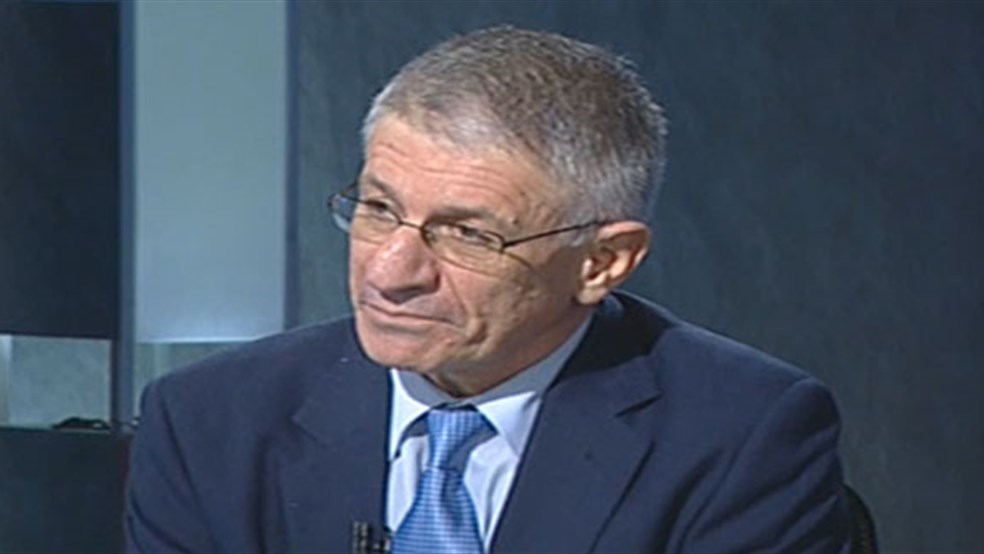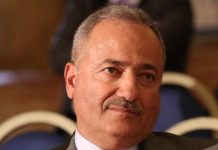قراءة في انتخابات لبنان: «الأقلية تحكم والأكثرية تعارض»
سام منسى/الشرق الأوسط/23 أيار/2022
A Reading into Lebanon’s Elections Results: Minority Rule, Majority Opposition
Sam Menassa/Asharq Al Awsat/May 23/2022
I have an experienced Lebanese politician’s comment about the elections in mind. The ‘excess’ of comments and analyses since the date of the elections was announced has overcome Hezbollah’s ‘excess’ of force. In truth, much has been written about these elections, in terms of predictions and comments, was far-fetched. It obscured many facts and spread either a sense of relief or hopelessness and in both cases, wishful thinking prevailed. Indeed, many were left scratching their heads even after the elections ended, as all parties, whether they won or lost, claimed victory.
The results, though, speak for themselves, and they are unequivocal. The axis of resistance lost several seats in what is widely seen to be the result of the following developments. The fall of the last remnants of Syrian tutelage reflects the collapse of the Syrian regime’s ability to play a regional role, becoming a mere Iran subordinate whose loyalists in Lebanon are no longer useful to Hezbollah. The latter saw support for it and its ally, the Amal Movement, drop slightly among its supporters, who came out in lower numbers than they had in 2018 despite its massive campaign. As for the Sunni and Christian communities, they showed a kind of aversion to traditional parties and a keenness for cross-sectarian politics that mirrors the October 17 revolution. Finally, we have to mention the confusion among Sunni amid the lack of a strong bloc united by a single lead to represent its interests like those of other sects.
In the opposite corner, the opposition, both traditional and reformist, made real progress. The Lebanese Forces did particularly well in their intra-Christian battle with the Free Patriotic Movement. With that, no side managed to win a majority that would allow it to make the decisions, especially under the so-called consociational democracy, which does not operate based on “majority rule and the minority opposition.”However, if we assume, for the sake of argument, that Lebanon’s system is parliamentary, the opposition composed of “sovereigns” and “reformists” can only form a majority by uniting and establishing a single front capable of bringing about real change and protecting this change. Many obstacles stand in the way, the most prominent of which are divergences on several issues and a lack of vision. They hinder the translation of the breakthroughs made during the elections into political outcomes and these victories nullify the coups carried out by Hezbollah and its tools- in an effort to change Lebanon’s identity, ways of living, and its role in the region-.
This cultural, civilizational, and political confrontation will not be attained without a clear vision regarding the country’s identity, national security, foreign policy, fiscal and monetary policies, reform process, steps to curb corruption, and decentralization. The most important issue remains the country’s political system, which is difficult to categorize. Indeed, one would not be exaggerating if one said that the state in Lebanon, in the legal and constitutional sense of the word, has not been built yet. The emergence of a new majority will not be consequential unless it presents convincing and realistic alternatives that appeal to the various Lebanese sectarian communities, especially the Shiite community. The axis of resistance, headed by Hezbollah, has a vision for Lebanon. It knows what it wants politically, security-wise, economically, and even culturally. Its vision has been shown to be dangerous, as it left the country in a state of chaos, paralysis, economic and financial collapse, and regional and international isolation it finds itself today.
Therefore, this new majority needs to give us many answers. It must first clearly define the political system it wants, and this is a thorny issue. Prominent political scientists have offered divergent definitions, as Michael Hudson described it as an oligarchic democracy and Jean Salmon sees it as chaos.
On the second, it regards the so-called defense strategy. I say so-called because merely putting it forward is an acknowledgment that the state does not have a monopoly on violence. Does the new majority want to continue to face off with Israel and perpetuate the militarization of the country’s social and economic systems? If it does, how does it plan to solve the problem of an armed non-state actor? Will it incorporate Hezbollah forces into the army, along what framework? If it does not, the question becomes: how does the opposition intend to confront not only the party’s arms but also the local and regional power that it now wields?
Moreover, four threats endanger the results that have been achieved and described as decisive: Politically, enthusiasm for the Taif Agreement among the majority of Christian blocs and Hezbollah has subsided. Economically, it seems that financial and social implosion is at the doorstep as national institutions falter, especially since it seems that forming a new government and electing a president by October is not at all a foregone conclusion. Security-wise, there are fears that Hezbollah will flex its muscles in response to attempts to isolate it, and the specter of tensions on the border with Israel- mirroring the July 2006 war that was instigated in response- to the victory of the March 14 forces in the 2005 elections looms. Its potential repercussions are difficult to predict. The intention, here, is not to shed doubt on the merits of members of the new majority but to emphasize their duty to build on past experiences to make the most of the results of these elections and build on them. Otherwise, we would be back at ground zero and the country would enter a new phase. As well as humility, sacrifice, realism, and keeping a lookout for the rabbits Hezbollah has in its hat. After the 2009 elections, it called for popular legitimacy rather than the constitutional legitimacy that emerged from the election. Now, we see its Secretary-General Hassan Nassrallah telling us that what concerns them is whether it opposes their policies, and they will accept or reject it on that basis!
As all of this goes on, international and regional players have always been there. Indeed, they are still major players. We hope that they have heard what the majority of Lebanese of all sects had to say. Nonetheless, hearing and “acquiescing and complying” is not the same thing.
قراءة في انتخابات لبنان: «الأقلية تحكم والأكثرية تعارض»
سام منسى/الشرق الأوسط/23 أيار/2022
يحضرني ما قاله سياسي لبناني مخضرم بسخرية، إن لبنان يشهد منذ الإعلان عن موعد الانتخابات التشريعية فائضاً من التعليقات والتحليلات والآراء، غلب فائض القوة والسلاح عند حزب الله. في الواقع، اتسم الحبر الذي سال بشأن هذا الاستحقاق الدستوري والتوقعات منه والتعليق على نتائجه بالمبالغة، ما أطاح أو يكاد بحقائق كثيرة وأشاع أجواء إما منتشية أو محبطة والجامع المشترك بينها هو غلبة التمنيات والبعد عن الواقع لدى الأطراف الرابحة والخاسرة معاً، فبات المراقب ضائعاً لأن الجميع يزعمون انتصارات مدوية وإلحاق الهزائم النكراء بمنافسيهم.
النتائج هي طبعاً الفيصل، وهي تظهر من دون مواربة أن حلف الممانعة مني بخسارة أفقدته عدداً من المقاعد في البرلمان في تراجع يُعتبر ترجمة لتحولات يمكن تلخيصها بالآتي: سقوط فلول الوصاية السورية في انعكاس لانهيار النظام السوري إقليمياً وتحوله إلى مجرد تابع للاعب الإيراني من جهة وانتهاء صلاحية معظمهم لدى حزب الله، تغير طفيف إنما ملحوظ في مزاج القاعدة الشعبية للثنائي الشيعي لا سيما تلك الموالية لحزب الله، وتجلى ذلك من خلال تراجع الإقبال على التصويت في مناطق سيطرتهما رغم كل التجييش الذي قاما به جزرة كان أم عصا، حالة تغييرية في البيئتين المسيحية والسنية أظهرت مزاجاً أقرب إلى نبذ الأحزاب التقليدية والميل إلى تيار مستقل عابر للطوائف يشبه ثورة 17 تشرين. وأخيراً، لا يغيب عن المشهد الارتباك لدى الطائفة السنية جراء عدم وصول كتلة سنية برلمانية وازنة ذات مرجعية واحدة كما هي الحال لدى الطوائف الأخرى.
في المقابل، حققت المعارضة بشقيها التقليدي والتغييري تقدماً وخرقاً ملموسين، لا سيما حزب القوات اللبنانية على حساب خصمه المسيحي التيار الوطني الحر ومرشحي القوى التغييرية. ومع ذلك، لم ينجح أي فريق في الحصول على أغلبية برلمانية تؤهله لأن تكون له أو لفريقه كلمة الفصل في القرارات، علماً بأن النظام السياسي الطائفي في لبنان وبدعة «الديمقراطية التوافقية» المستجدة لا يسمحان أصلاً بحكم على أساس «الأكثرية تحكم والأقلية تعارض».
ومع ذلك، وإذا سلمنا أن نظام لبنان هو برلماني، لن تصبح المعارضة السابقة المحيّرة بين «سياديين» و«إصلاحيين» الأكثرية الجديدة إلا عبر توحيد صفوفها وتكوين جبهة واحدة قادرة على إحداث تغيير فعلي وحماية هذا التغيير. قد يحول دون ذلك عقبات كثيرة أبرزها تباينات على أكثر من مسألة وعدم وجود رؤى وخطط وبرامج معدة من قبل الأطراف تجعل الاختراق الذي حققته يتجاوز الغلبة في المقاعد ليترجم في السياسة ويلغي سلسلة الانقلابات التي قام بها حزب الله وأدواته سعياً لتغيير هوية لبنان وأنماط عيشه ودوره في المنطقة. المواجهة الثقافية والحضارية والسياسية هذه لن تحققها مجرد غلبة في المقاعد دون إجابات واضحة عن مفهوم الأمن القومي والدفاعي، ومسار السياسة الخارجية والسياسات المالية والنقدية، وإصلاح الإدارة ومكافحة الفساد واللامركزية. وتبقى القضية الأهم هي النظام السياسي المعتمد الذي يصعب اليوم تصنيفه لغربته عن الأنظمة السياسية المعروفة كافة، لدرجة لا نبالغ معها إذا قلنا إن الدولة في لبنان بالمعنى القانوني والدستوري للكلمة لم تبن بعد. لن تكون الأكثرية الجديدة فاعلة إذا لم تضع لشعاراتها حول هذه المسائل الجوهرية مضامين تقدم بدائل مقنعة وواقعية تستطيع بواسطتها أن تطال عمق الشرائح اللبنانية الطائفية والمذهبية والاجتماعية المتعددة، لا سيما الاجتماع الشيعي. فمحور الممانعة، وعلى رأسه حزب الله، له رؤيته حول أي لبنان يريد سياسياً وأمنياً واقتصادياً وحتى ثقافياً، وهي رؤية ثُبت ضررها إذ جعلت البلاد على ما هي عليه اليوم من فوضى وتعطيل وانهيار اقتصادي ومالي وعزلة إقليمية ودولية.
لذلك ثمة إجابات كثيرة مطلوبة من هذه الأكثرية الجديدة التي ما تزال «أكثرية بالقوة»، أولها يتعلق بتحديد واضح للنظام السياسي الذي تريده والمسألة شائكة، إذ أكبر علماء السياسة اختلفوا في تعريف النظام السياسي اللبناني، حيث وصفه مايكل هيدسون بالديمقراطي الأوليغرشي وجون كلود دفنس بالبوليارشي وجان سلمون بالفوضوي. أما ثانيها، فهو يتعلق بما يسمى الاستراتيجية الدفاعية، ونقول ما يسمى، لأن مجرد طرحها هو اعتراف بعدم حصرية السلاح بيد الدولة. هل تريد الأكثرية الجديدة مواصلة المواجهة مع إسرائيل وعسكرة النظامين الاجتماعي والاقتصادي في البلاد أم لا؟ إذا نعم، كيف تحل مشكلة السلاح الخارج عن الدولة؟ عبر دمج حزب الله بالجيش وبأي صيغة؟ أو إبقاء الأمور على ما هي عليه ضمن المعادلة الثلاثية؟ وإذا لا، كيف تنوي مواجهة ليس فقط سلاح الحزب بل القوة المحلية والإقليمية التي بات يتمتع بها؟
إلى هذا، ثمة أربعة مخاطر تهدد نتائج هذا الاستحقاق الذي وصف بالحاسم: في السياسة، خفوت حماسة التمسك باتفاق الطائف لدى غالبية الكتل المسيحية وحزب الله. في الاقتصاد، يبدو أن الانفجار المالي والاجتماعي على الأبواب بسبب التعثر المنتظر في سير عمل المؤسسات الدستورية لا سيما موضوع الاتفاق على الحكومة الجديدة واستحقاق الانتخابات الرئاسية في أكتوبر (تشرين الأول) المقبل. في الأمن، الخشية من أن يلجأ حزب الله إلى عضلاته للرد على محاولة عزله ومحاصرته، وقد يلوح في الأفق شبح توترات على الحدود مع إسرائيل يصعب التكهن بتداعياتها على غرار ما شهدناه إبان فوز قوى 14 آذار في انتخابات سنة 2005 باندلاع حرب تموز 2006 مع إسرائيل.
ليس المقصود الشك في كفاءات كثيرة لدى هذه الأكثرية الجديدة، إنما الحذر واجب بناء على تجارب الماضي في لبنان للإفادة من الوقائع التي عكستها نتائج هذه الانتخابات والبناء عليها وإلا عدنا إلى نقطة الصفر ودخلت البلاد في حالة أكثر تعقيداً. المطلوب إلى جانب التواضع والتضحية والواقعية التنبه إلى جهوزية حزب الله الدائمة لإخراج الأرانب من جعبته وقلب الحقائق إذا جاءت لغير مصلحته. فكما فعل إبان انتخابات 2009 حين نادى بغلبة الشرعية الشعبية مقابل الشرعية الدستورية التي جاءت بها الانتخابات يومها، ها هو أمينه العام حسن نصر الله يخرج علينا في خطابه الأخير يوم الجمعة الفائت بالفصل بين الدولة والسلطة إذ قال ما معناه إن ما يهمهم كحزب هو أي سلطة تأتي بمعنى إذا جاءت مخالفة لسياساته لن يعترفوا بها! بشائر تقتضي التنبه والحذر.
وسط كل ذلك، لم يغب العامل الدولي والإقليمي ولا مرة عن المشهد، بل كان وما يزال لاعباً رئيسياً، فعسى أن يكون قد استمع لرغبة غالبية اللبنانيين ومن كل الطوائف. إنما يبقى الاستماع شيئاً فيما تكون «الموافقة والانصياع» شيئاً آخر.























